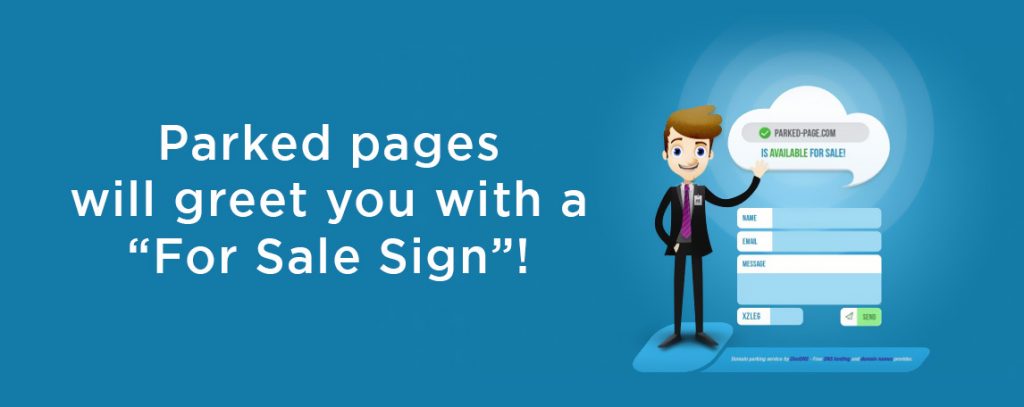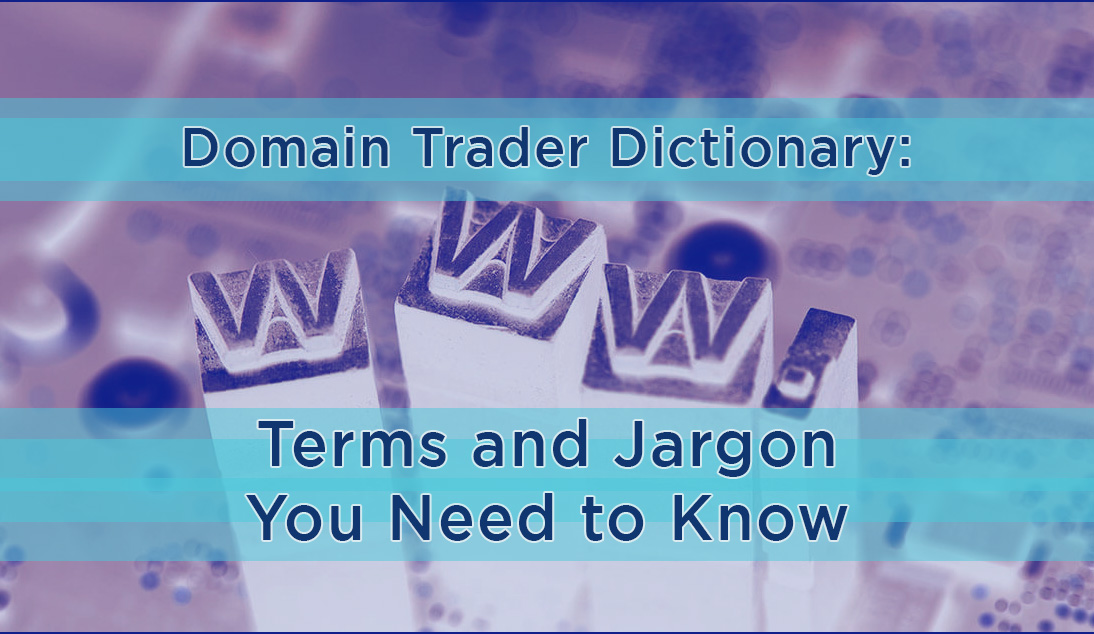Much like any profession or hobby, domain investors and domain traders do have their terminology and jargon. Some of these terms are shortened, scribbled versions of their originals and look self-explanatory, though others will have you scratching your head.
Important Domainer Dictionary Terms
We would like to cite and explain the most important domainer terms and jargon words you will come across while mingling with this crowd.
Domainer definition
A person or entity which buys and sells (traders) domain names for a profit. Some would call them Domain Investors but that is only a part of the equation. Every investor will seek a profit from the investment, and hence they are traders.
Parking a domain
when talking about parking you would think about leaving a car on a parking lot for a relatively short period of time, but with domains, it is a bit different. How is it different?

When “parking a domain” what you are doing is having a domain name that you do not use for a developed website hosted with a single page that usually displays the “For Sale” message along with a few ads.
Why would you park a domain?
The main reason to park a domain is profit, and this is also the main reason you will not be parking all of your domains but only some. The domains that you will be parking are ones that receive organic traffic from search engines because people type it into their browser and come to that address by accident but there is no website, so you can make a very small profit from showing ads with a cheap one-page website.
Monetization
Domain monetization can be done in a few ways, though usually it is done by “parking a domain” with a hosting or registry company. In order for the domain to make a profit it must have organic traffic.
Cybersquatting
Cybersquatting is a relatively new, negative corporate term which usually describes someones malicious use of a domain name for their ends. Usually when someone is holding a domain name which is a perfect match (or a match with one typing error) of a company or business and is being used to extract profit or bring harm to the said company.
Cybersquatter is that someone we already mentioned. I would like to point out that many current court cases for domain ownership transfer are based on cybersquatting claims and claim trademark infringement.

A non-trivial number of them is false and these domain traders have kept ownership of their domains by producing evidence that proves they registered and held these domains long before these companies even existed, and as such were never meant for malicious use or trademark infringement.
Buy Now
Buy Now is jargon for a domain name that is listed with a fixed price aiming for direct sale to the end-user without any kind of bargain or auction.
Make Offer
Domains that are referred as “make an offer” are those that are listed without a price so the interested parties need to make an offer and start negotiations for the transaction, though it is not uncommon that the domainer names his price in the process.
Domain drop
Domain drop is a jargon term for a domain name that is about to expire or one that the domainer no longer wishes to own. Sometimes domain owners neglect a part of their domain portfolio, fail to make the registration renewal, and the domain will drop (expire).
Backorder service
Talking about domain drop, we must mention “drop catching” or “backorder service” as it refers to services that acquire domains the moment they are deleted upon expiration. These services are instrumental in acquiring valuable domains at a low price.
Many renown and valuable domains have an outstanding backorder on them with multiple parties interested.
Hand reg
Hand reg – is a shortened jargon for “hand registration” and it refers to manual registration on a single, available domain name, not owned by anyone.

Auth code
Auth code, called EPP code, is letters and numbers code sequence needed to complete a domain transfer between registrars. After acquiring a domain name, domain traders often make a domain transfer to a different domain registrar, one that is favored by the buyer.
Push
Push term is used for a domain transfer from one owner to another, within the same domain registrar, and is fairly common as most domainers do have accounts with every major domain registrar.
UDRP
Uniform Domain Name Dispute Resolution Policy is referred to as UDRP, and it means a quick and inexpensively settle for a cybersquatting claim.
Domain registrars tend to avoid issues with a court of law, and in some cybersquatting cases, they will deem the domain in question falls under UDRP and as such resolve the domain ownership in favor of the complainant.
Conclusion, knowing the domain trader lingo
Learning these lingo terms is just the tip of the iceberg, but these are the most important and they will help you have an educated conversation with another domain trader.
Like any other hobby or profession, being able to converse successfully you will have more fun and potentially make a profit.
